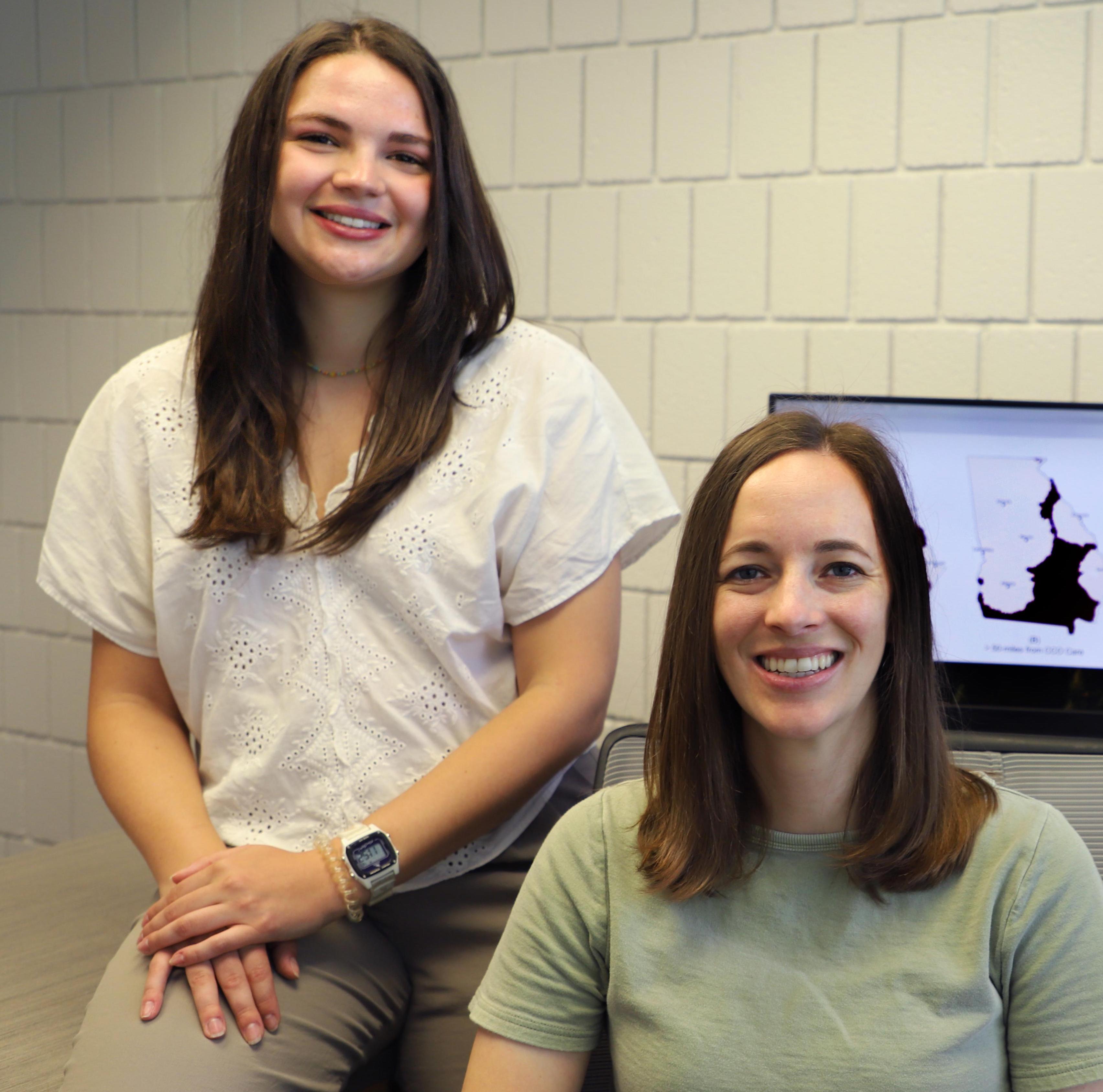Motherhood in the U.S. can be dangerous. The nation spends more on healthcare than any other high-income country. But women giving birth here — particularly Black women, and particularly in Georgia — are more likely to die in childbirth. A big reason for this maternal mortality crisis is a lack of access to obstetric care.
“Georgia has a problem with access to care — the whole country does,” said Meghan Meredith, a fourth-year Ph.D. student in the H. Milton Stewart School of Industrial and Systems Engineering (ISyE) who has spent much of her academic career studying the problem, which is particularly acute in rural, lower-income places.
Many of these places have been designated “maternity care deserts” by the March of Dimes. If a county doesn’t have any obstetric care or providers, it’s considered a desert. Another commonly used measure is whether a pregnant woman lives within 50 miles of critical care obstetrics (CCO).
These measures are often referred to in academic literature and popular media to highlight a lack of healthcare access, and by public policy leaders trying to address the issue. But it’s become evident to Georgia Tech researchers that they just don’t add up.
“These measures don’t capture the complete picture,” said Meredith. “They aren’t an accurate representation of access to care.”
And that’s what concerns Meredith and her faculty advisor, ISyE Assistant Professor Lauren Steimle.
“We’ve been interested in access to maternal care for a long time, and in countless news stories, the maternity care desert measure is reported on,” Meredith said. “We recognized the limitations, so we thought, ‘Let’s write a paper that explains how this measure is not a complete representation of access.’”
They published their work recently in the journal BMC Health Services Research.
Read the full story here.
